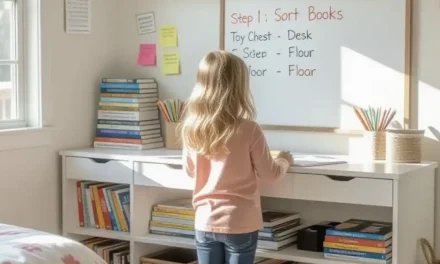
Developing Memory: How Memory Can Be Trained
M
emory isn’t fixed—it’s a skill. Like muscles, it strengthens with use, and the right techniques can make it sharper and more reliable. While some children seem to recall things easily, others just need better tools. Whether it’s a multiplication fact or a family story, how we store and retrieve information matters. Teaching kids that memory can be trained turns frustration into curiosity. They stop saying, “I’m just forgetful,” and start asking, “What method helps me remember this?” That shift builds confidence—and teaches them that growth isn’t magic, it’s method.
One rainy afternoon, my son kept forgetting the steps in a science experiment, which made him flustered. We paused and tried something different. I asked him to imagine each step as part of a silly movie: a beaker wearing sunglasses, vinegar dancing into the bowl. He laughed—and remembered every part. Later, we added rhythm: he clapped out the steps to a beat. That combination of image and sound clicked. Now, when studying, he picks the right technique—visual, verbal, or rhythmic—and uses it on purpose. He no longer fears forgetting. He feels equipped.
To train memory, introduce your child to simple techniques and let them experiment. Try visualization (picturing scenes), chunking (grouping info), association (linking new facts to familiar ones), mnemonics (rhymes, acronyms, or phrases), or Memory Palace. For younger kids, use toys or drawings to bring concepts to life. For teens, show how memory techniques help with studying or storytelling. Ask which method works best for them—it builds metacognition, their ability to think about thinking. Once kids see memory as something they do, not just something they have, they begin to use it with intention.
Developing Memory

Developing Memory: How Parents Can Foster Memory
Parents can nurture memory through conversation, storytelling, and reflection. Support your child’s learning with gentle, consistent habits.

Developing Memory: Why Memory Matters
Memory shapes learning, confidence, and understanding. Help children build strong recall skills that support curiosity and school success.
Table of contents

Primordial Soup for the Mind: Navigation
Navigate the book Primordial Soup for the Mind.
TIP
Model memory use aloud. Say, “To remember this, I’m going to picture it like…” or “I’ll chunk this into three steps.” Showing your own strategy makes theirs feel natural.
ACTIVITY
Have your child memorize a short list of items using a technique of their choice—story, picture, acronym, Memory Palace. Then switch roles and let them quiz you using the same trick. It becomes a game of method, not just recall.
EXAMPLE
If your child remembers something using a rhyme, say, “That rhyme made it easier, right? You just trained your memory.” Reinforce the connection between technique and success.

Download “Primordial Soup for the Mind: A Parent’s Guide to Nurturing Intellectual Growth”
Enter your information to get this article and hundreds more as part of the FREE book Primordial Soup for the Mind.
Share your thoughts with the Thought Academy community in the Comments section below.

Sharpen those skills!
Enter your information to get our FREE practice exercises so you can hone your critical thinking and reasoning skills!







0 Comments